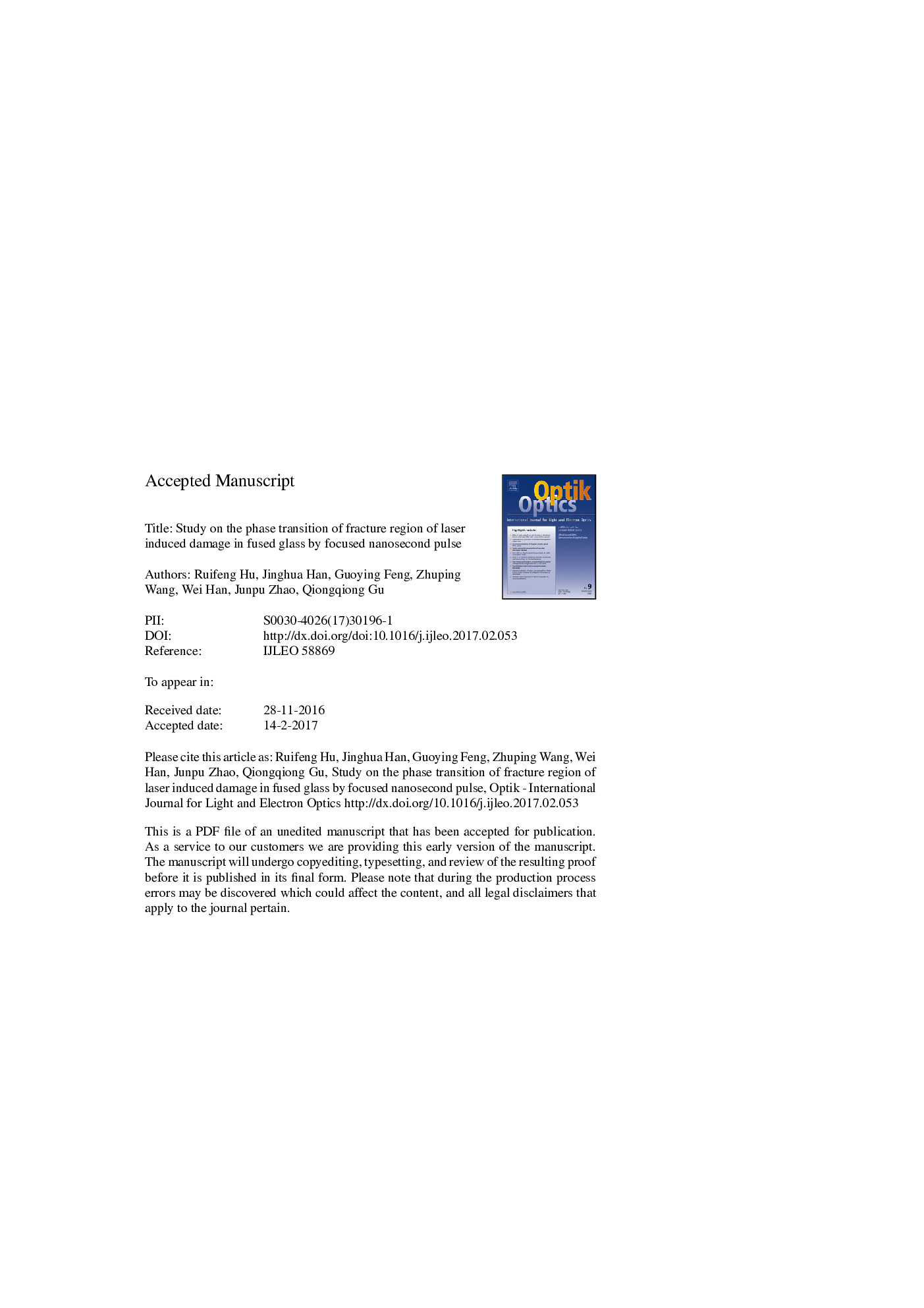| کد مقاله | کد نشریه | سال انتشار | مقاله انگلیسی | نسخه تمام متن |
|---|---|---|---|---|
| 5025491 | 1470587 | 2017 | 16 صفحه PDF | دانلود رایگان |
عنوان انگلیسی مقاله ISI
Study on the phase transition of fracture region of laser induced damage in fused glass by focused nanosecond pulse
ترجمه فارسی عنوان
مطالعه انتقال فاز منطقه شکستگی آسیب های ناشی از لیزر در شیشه ی فیوز با استفاده از پالس نانوساختار متمرکز
دانلود مقاله + سفارش ترجمه
دانلود مقاله ISI انگلیسی
رایگان برای ایرانیان
کلمات کلیدی
شیشه خرد شده آسیب ناشی از لیزر، انتقال فاز، طیف رامان،
موضوعات مرتبط
مهندسی و علوم پایه
سایر رشته های مهندسی
مهندسی (عمومی)
چکیده انگلیسی
As a key optical material in high-energy laser system, the laser induced damage of fused silica glass has been one of the bottlenecks to limit output of the laser influence. In this paper, the morphology of fractures on fused silica glass surface as well as phase transition caused by laser pulse shock wave have been investigated in theory and experiment, and we found that the whole fracture region can be divided into hackle zone, mist zone and mirror zone, which were produced by the tip of hoop stress formed in glass under the action of laser plasma shock wave. During cracks initiating and propagating of fused silica glass, the existing of cracks can reduce the relative content of three- and four-number rings structures corresponding to the stishovite and the coesite which caused by the absence oxygen free, this kind of change may destroy the mesh topology severely, and induce phase transitions. From the micro level, the non-bridging oxygen hole center and E' center lead to the decrease of the optical band gaps as well as transmittance which seriously affect the performance of glass.
ناشر
Database: Elsevier - ScienceDirect (ساینس دایرکت)
Journal: Optik - International Journal for Light and Electron Optics - Volume 140, July 2017, Pages 427-433
Journal: Optik - International Journal for Light and Electron Optics - Volume 140, July 2017, Pages 427-433
نویسندگان
Ruifeng Hu, Jinghua Han, Guoying Feng, Zhuping Wang, Wei Han, Junpu Zhao, Qiongqiong Gu,
